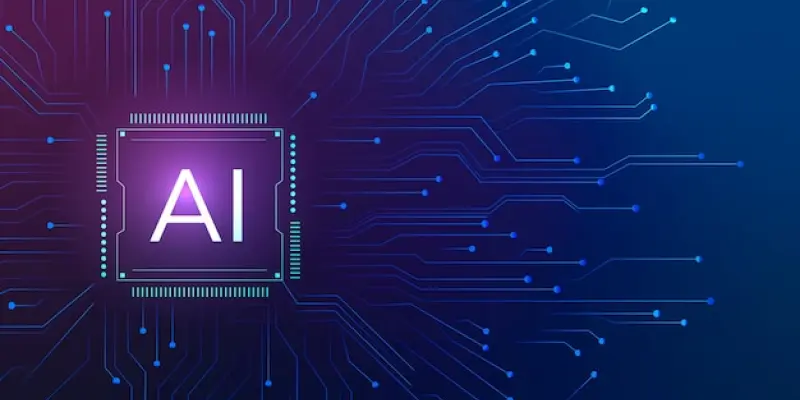In today’s digital age, the demand for engaging, professional presentations is higher than ever. Artificial intelligence (AI) integration into presentation tools has introduced a significant shift in both design and delivery processes. AI-powered presentation tools are revolutionizing the way we create and deliver presentations, making it easier to produce compelling, professional-quality content quickly and efficiently. This transformation has been a game-changer, allowing users to harness AI-driven features that extend far beyond the capabilities of traditional presentation software.
Understanding AI PowerPoint Presentation Tools
AI-powered presentation tools are advanced software solutions that leverage artificial intelligence and machine learning algorithms to assist users in creating, designing, and presenting slides. These tools go beyond traditional presentation software by offering intelligent features like automated design suggestions, content optimization, and real-time assistance. By analyzing extensive data and design principles, they provide smart recommendations that align with professional standards. The advent of these tools marks a significant evolution from manually managed, basic slide creation methods to sophisticated AI-driven platforms.
The shift from basic slide creation tools to sophisticated AI-powered platforms has been remarkable. Traditional programs such as PowerPoint required users to handle every detail manually, from design elements to content organization. The introduction of AI has facilitated a paradigm shift, evolving from simple templates to advanced systems that understand context, suggest enhancements, and automatically generate content. This evolution not only saves time but also ensures that presentations meet a higher standard of professionalism and engagement, catering to an ever-increasing demand for quality presentations.
Key Features of AI Presentation Platforms
Modern AI presentation platforms boast a range of features that significantly enhance efficiency and professionalism in creating presentations. One standout feature is intelligent design assistance. AI tools analyze your content and presentation goals to offer tailored design recommendations that improve visual appeal and communication effectiveness.
Automated layout optimization is another significant feature. These platforms suggest appropriate layouts and automatically format content, drastically reducing the time and effort required. This automation allows presenters to concentrate more on their message and delivery rather than technical details. Tasks that previously took hours, such as aligning images and text or ensuring a balanced design, can now be accomplished in minutes with the help of AI.
Smart content suggestions further enhance the capabilities of AI presentation platforms. AI can generate relevant content ideas, compelling headlines, and suggest transitions, helping users overcome writer’s block and create more engaging presentations.
Benefits of Using AI for PowerPoint Presentations
One of the primary benefits of AI-powered presentation tools is the significant reduction in time spent on creation and formatting. AI algorithms can generate professional-looking slides, suggest layouts, and format content almost instantly. This time-saving automation allows presenters to dedicate more time to refining their message and preparing for delivery, ultimately enhancing the presentation’s overall quality.
AI design tools democratize professional-grade design capabilities, making them accessible to users of all skill levels. By analyzing millions of presentations, these systems learn effective design principles and apply them to user content.
Real-time translation and accessibility improvements are other notable benefits of AI-powered presentation tools. These capabilities facilitate reaching global audiences and ensure presentations are accessible to individuals with different abilities.
Popular AI PowerPoint Tools and Features
Microsoft’s PowerPoint Designer is a prime example of AI integration in presentation software, exemplifying how AI can enhance traditional platforms. It uses artificial intelligence to analyze slide content and automatically suggest professional design layouts, transforming bullet points into smart graphics, recommending relevant icons, and proposing professional design variations based on the content.
Canva also integrates AI features that streamline the presentation creation process. It offers AI-powered design suggestions, automatic background removal, and smart resizing features, enabling users to create professional presentations without extensive design experience.
The Beautiful.ai platform represents a further advancement in AI-powered presentation tools, focusing heavily on automation. Features like smart templates automatically adjust based on the content, ensuring proper spacing, alignment, and visual hierarchy.
Best Practices for AI-Enhanced Presentations
While AI tools offer powerful automation, it is crucial to maintain a human touch in presentations. AI-generated suggestions should serve as a starting point, but customization and personalization of content are necessary to reflect the presenter’s unique message and style.
To maximize the benefits of AI-powered tools, users must understand their capabilities and limitations. Reviewing and validating AI-generated content and design suggestions is essential to ensure they meet the specific presentation needs.
Future Trends in AI Presentation Technology
In today’s digital era, there’s a growing demand for captivating, professional-grade presentations. The integration of artificial intelligence (AI) into presentation tools has brought about a major shift in how we design and deliver these presentations. AI-powered tools now make it possible to create sophisticated, high-quality content quickly and effortlessly, transforming the entire process. This transformation has truly been a game-changer, enabling users to utilize AI-driven features that surpass the limitations of traditional presentation software.
AI technologies assist in various aspects of presentation creation, from design suggestions to layout optimization and even content generation. This capability saves time and ensures that presentations are polished and visually appealing. Moreover, AI can analyze audience engagement and provide insights to enhance the overall impact of the presentation. Embracing these AI advancements can significantly enhance presentation outcomes, making them more engaging and impactful.

